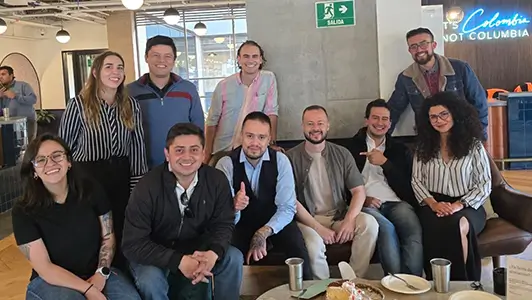The gig economy, once heralded as a new era of economic opportunity, has evolved into something far more complex. Platforms like Uber and Turo promised financial independence and flexibility. Yet, beneath the glossy veneer of convenience and choice lies a fundamentally broken system. A singular focus on growth and scale has overshadowed the well-being of workers, eroded community fabric, and strained regulatory frameworks.
It’s time to question the prevailing narrative. The gig economy is not simply a marketplace; it’s a social experiment with profound implications. This model has fallen short of its potential and requires a new path forward: one that prioritizes people, planet, and profit.
The gig economy’s growth dilemma
The pursuit of exponential growth has often overshadowed the fundamental need to create a sustainable and equitable environment for all participants. This growth-centric approach has led to significant challenges that need to be addressed to ensure the future viability and fairness of the gig economy.
The worker’s perspective
The promise of the gig economy was to empower individuals, transforming them into entrepreneurs in control of their own destinies. However, for many gig workers, this promise has fallen short. The reality is often one of precarious employment, low wages, and a lack of benefits.
Uber drivers, for instance, have faced significant challenges. False promises of high earnings have lured many into the platform, only to discover that after expenses, their income is often below minimum wage. Turo hosts, while technically independent contractors, face risks to their personal property without adequate insurance protection.
These platforms have prioritized growth and profitability over worker welfare. By classifying workers as independent contractors, they’ve avoided providing essential benefits like healthcare, unemployment insurance, and workers’ compensation. The result is a workforce that is vulnerable to economic downturns and lacks the security of traditional employment.
Regulatory and legal challenges
The rapid expansion of the gig economy has outpaced regulatory frameworks, creating a legal landscape fraught with uncertainty. These platforms have challenged traditional labor laws, blurring the lines between employees and independent contractors. This ambiguity has led to a patchwork of regulations across different jurisdictions, making it difficult for platforms and workers to navigate.
Home-sharing platforms, for example, have faced backlash from cities concerned about housing affordability and the impact on local communities. Restrictions on short-term rentals have been implemented in many areas, highlighting the challenges of balancing the interests of property owners, residents, and tourists. Uber and Lyft have also faced legal battles over driver classification, with courts in some states ruling that drivers should be considered employees entitled to benefits.
These regulatory hurdles create operational challenges for platforms and contribute to a sense of instability for gig workers.
The impact on communities
Beyond the challenges faced by individual workers, the gig economy has also had significant consequences for communities. The rise of short-term rentals, facilitated by home-sharing platforms, has contributed to housing shortages and increased costs in popular tourist destinations. Entire neighborhoods have been transformed into transient hubs, disrupting the social fabric and diminishing the character of these areas.
Moreover, the gig economy’s reliance on cars has exacerbated traffic congestion, pollution, and urban sprawl. While offering convenient transportation options, platforms like Uber and Lyft have contributed to increased vehicle emissions and dependence on automobiles. This has negative implications for public health and quality of life.
The rapid growth of these platforms has often occurred without adequate planning or consideration of the potential impacts on cities and their residents. This has created challenges for policymakers and community leaders as they strive to balance the benefits of innovation with the need to protect the interests of their citizens.
The rise of experience-focused entrepreneurship
The gig economy, as it currently stands, is a missed opportunity. By focusing solely on growth and scale, platforms have neglected the potential to cultivate a thriving community of entrepreneurs. Instead of treating workers as interchangeable commodities, these platforms should focus on empowering individuals to build sustainable businesses within their ecosystem.
Home and Villas by Marriott Bonvoy offers a glimpse into this alternative model. By emphasizing quality, consistency, and professional management, they have created a successful niche within the vacation rental market. This approach prioritizes customer experience while providing opportunities for property owners to generate income.
Platforms can foster a loyal and engaged community by investing in the success of their gig workers. This shift in focus would require a fundamental change in business strategy, prioritizing long-term sustainability over short-term gains.
A path forward for the gig economy
To realize the full potential of the gig economy, a fundamental shift in mindset is required. Platforms must transition from being mere intermediaries to active partners in the success of their workers. By investing in education, training, and support, platforms can cultivate a community of entrepreneurs who are equipped to thrive.
This transformation will require a delicate balance of individual empowerment and platform oversight. Platforms must establish clear guidelines and standards while granting workers the autonomy to innovate and grow. By fostering a culture of collaboration and shared responsibility, platforms can create a more equitable and sustainable ecosystem.
Additionally, addressing the regulatory challenges posed by the gig economy is essential for long-term success. Platforms should work with policymakers to develop frameworks that protect workers’ rights while also encouraging innovation. By engaging in constructive dialogue, the industry can contribute to developing policies that support workers and businesses.
Ultimately, the future of the gig economy lies in its ability to create value for all stakeholders. By prioritizing the well-being of workers, fostering strong community relationships, and operating within a robust regulatory environment, platforms can build a more resilient and sustainable business model.
Conclusion
The gig economy is at a crossroads. The current model, characterized by a relentless pursuit of growth, has created an unsustainable and inequitable system. A fundamental shift is necessary to realize the full potential of this economic paradigm.
By prioritizing the development of experience-focused entrepreneurs, platforms can create a more just and prosperous future for both workers and businesses. This transformation will require courage, innovation, and a long-term perspective.
It is time to redefine the gig economy. Let us move beyond the rhetoric of disruption and embrace a vision of shared prosperity.
















